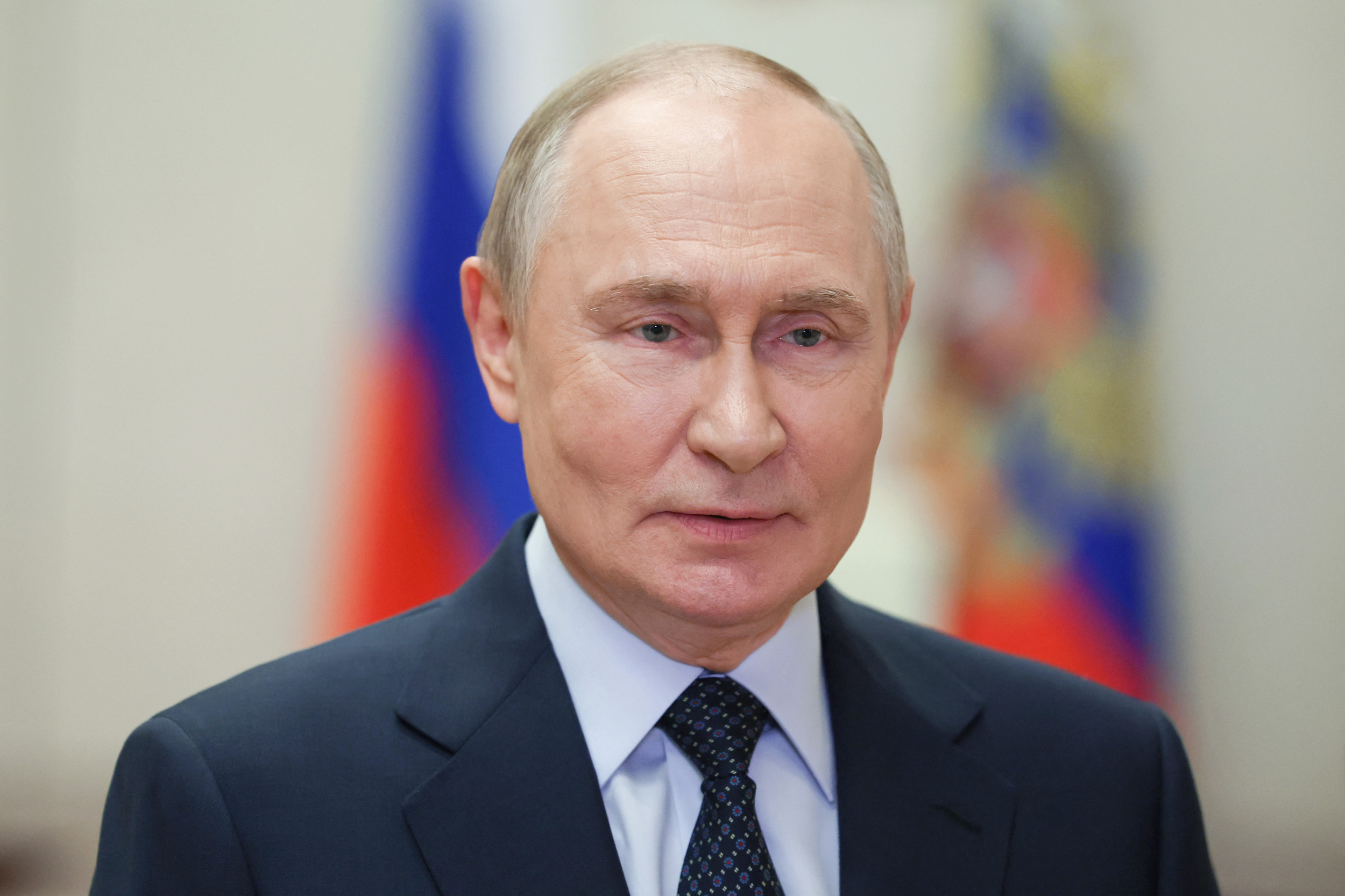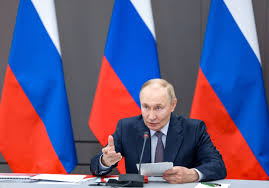Amidst heightened tensions between Russia and the West, Russian President Vladimir Putin made a significant announcement that Moscow would continue to uphold restrictions on nuclear arms under the New START Treaty with the U.S. for an additional year after its expiration in February 2026. This decision was revealed by Putin during a meeting of Russia's Security Council, where he emphasized the importance of global stability and the prevention of nuclear proliferation.
The New START Treaty, signed in 2010 by then-U.S. President Barack Obama and Russian counterpart Dmitry Medvedev, imposes limits on each country, allowing no more than 1,550 deployed nuclear warheads and 700 deployed missiles and bombers. The imminent expiry of the treaty and the absence of discussions regarding a successor deal have fueled concerns among arms control advocates. Additionally, on-site inspections meant to verify compliance have been inactive since 2020.
In February 2023, Putin suspended Russia's participation in the treaty due to objections over U.S. inspections of Russian nuclear sites and concerns about NATO's stance toward Moscow's actions in Ukraine. Despite this suspension, Russia reiterated its commitment to honoring the treaty's nuclear weapons caps and continued to inform the U.S. about ballistic missile test launches.
Putin's recent statement comes amidst escalating tensions between Russia and NATO, exemplified by incidents such as Russian drones entering Polish territory and accusations of Russian fighter jet violations in Estonia's airspace. These events have raised apprehensions about the potential escalation of hostilities beyond Ukraine's borders.
Moreover, the NATO-Russia conflict has intensified with Estonia and Poland requesting Article 4 consultations over what they deemed as significant airspace violations by Russia. NATO's growing involvement in supporting Ukraine's defense against Russia's invasion, manifested by Poland's downing of Russian drones and NATO allies intercepting Russian fighter jets near Estonia, further highlights the escalating nature of the situation.
President Donald Trump has been actively engaged in diplomatic efforts to mediate peace between Russia and Ukraine. Trump has urged European allies to intensify sanctions against Russia and its strategic partner, China, to apply pressure for peaceful resolutions. However, key obstacles to a peace deal remain, particularly the territorial division and the future security architecture of Ukraine.
The international community, particularly NATO members, is closely monitoring developments between Russia and Ukraine, as the prospect of a direct conflict between NATO and Russia looms larger. With several Baltic and Eastern European countries expressing concerns over Russian provocations, calls for a unified and robust response to deter further aggression from Russia have grown louder.
Putin's announcement regarding the extension of adherence to the New START Treaty signifies a measured approach aimed at maintaining strategic stability and promoting meaningful dialogues with the U.S. on nuclear arms control. As the world watches the dynamics between Russia, the U.S., and their respective allies, the need for diplomatic solutions to avert potential conflicts and ensure global security becomes increasingly paramount.


